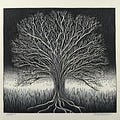I have become—over the past year or so— politely obsessed with the notion of Katabasis, the literary device of the Hero’s Descent into Hell. I also harbour an affection for the word itself: I think it’s rather beautiful and I intend to use it for at least two projects I have underway presently, both involving journeys to the Underworld.
The conceit of visiting Hell is excellent. It is symbolic and fun. For many years, I have been a staunch advocate for the popular reading of Inferno, Dante Alighieiri’s first entry into his Divine Comedy. Inferno is brilliant and many passages have stuck with me over the years from the electric opening lines to the tormented stanzas of Canto V to the humorous ribaldry of the Malebolge portions. However, there is one line in Inferno that has stuck to me greater than others. It appears in the opening verses of Canto 12, spoken by Virgil to the Minotaur of Crete as he defends Dante’s presence in Hell (Dante is living and so his presence in the Underworld is often questioned). Virgil explains: He comes to see what you are suffering here (from Robin Kirkpatrick’s stirring translation).
I love this line, as translated by Kirkpatrick. Longfellow translated it: …he comes |
In order to behold your punishments. I like this less and have generally liked other translations less than Kirkpatrick’s. The line is overall perfect because it encapsulates Dante’s Katabasis: It tells us what is happening and reminds us why he is descending the circles of Hell. However, Kirkpatrick’s translation so often uses a word of lightning that was but a candle’s flickering flame in other translations. Here, the word is suffering. Kirkpatrick’s use of the word suffering takes us one step beyond mere narrative sensibility: it reminds us of what we, the readers, are doing. It grounds us in Dante’s awkward empathy for the damned. And that’s quite important to me because, of course, Dante’s Hell is just like all other Underworlds: It is a petty metaphor for the land of the living.
We have come to see what is suffered here. We all undertake our katabasis daily, weekly, and regularly throughout our lives.
The Buddhists are correct, I believe. Life is suffering. It is universal. Letting go of attachments is a deep discipline that eases suffering. Understanding suffering is an honourable endeavour. Overcoming suffering is necessary but also impossible. It is the contrapasso of living: We are fated to endeavour to rise above the Sea Without a Surface. One must imagine Sisyphus happy, and so on.
The use of katabasis in storytelling is smart. Everyone loves a good Hell, and everyone relates to suffering. It is good to suffer, though not-good it may feel. Why is it good to suffer? It brings us closer to humanity. Unfortunately, many use their suffering as an excuse to divorce themselves from the rest of us, failing to understand that it is the least lonely thing in the universe: to suffer. Unpleasant feelings are not easy to market in a capitalist society, so they are discouraged, and their snake-oil antidotes are sold in the form of Content that aims only to distract us from the pain of living. The cycle of traumatic wisdom endures under capitalism. Suffering is bad and so you should avoid life.
So stupid. I hope more people realize that a katabasis is an exciting honour—a human tradition. New Age influencers often hock their illusions as enlightenment, claiming their serial tricks will deprogram, deconstruct, and then instill some meaning into one’s reality. Truly, the problems of the world were solved many hundreds of years ago by sages and monks and philosophers whose writings became the Perennial Misunderstood (hi, Christianity; please forgive us for what the Christians did to you). Deep contemplation and acceptance of suffering are the only tools the good human needs to descend the depths of the personal Hell and exit the asshole of the world into radiant starlight. So it goes.
I wish I could distill my perceptions into others, or at least give them a sampling on a small spoon. Their suffering so often catalyses my own. It is difficult to bridge gaps of meaning and understanding, though. For now, Sweet Reader, all I can say or attest to is this: The vinegar is sweet.
I hope you’re having a good descent. Amen.

